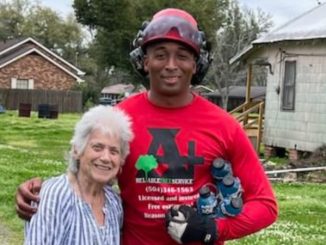
Many Louisiana home and business owners were concerned when they recently learned that our property insurer of last resort—Louisiana Citizens Property Insurance Company of Louisiana—is raising its rates by an average of 18 percent effective October 1 of this year.
Escalating property insurance premiums have been a problem in Louisiana since Hurricane Andrew slammed into our coastline. The damage and concern engendered by Hurricanes Katrina and Rita only added to an existing problem.
Louisiana had two clear choices to make in addressing the property insurance crisis. We could have followed the lead of Florida and enacted laws and regulations that would have encouraged property insurance carriers to leave or to stop writing. That would have forced an even larger portion of the marketplace to go into the residual market (Citizens).
The Florida approach has done nothing to improve their insurance affordability and availability. All it did was to put the Florida state treasury at risk if any serious hurricanes do hit the Sunshine State any time soon.
Louisiana wisely opted for a different approach. The focus here was to do anything and everything to get as many property insurance policies out of Citizens as possible. State law guarantees that Citizens will have the highest rates and generally the highest deductibles in the marketplace. It is not a good place to be if you are insuring property from wind storm damage. Governor Blanco supported an approach that attempted to increase the amount of property insurance being written in the private market. The wisdom of that approach is now becoming evident.
In 2007, the Legislature passed an incentive program designed to bring in new companies that were not currently underwriting property insurance policies in Louisiana. These carriers are getting a state match of up to $10 million for the surplus they must have available to be licensed to write policies in the Bayou State. Essentially, they can write twice the amount in premiums that they have in surplus. That means that every $10 million state match equates to $40 million in new coverage being written. It is important to note that the companies participating must use at least 25 percent of the underwriting to take policies out of Citizens and must also do 50 percent of their underwriting in the “Go Zone” parishes that were affected by the hurricanes.
The first five companies to enroll in the program are now pulling policies out of Citizens. The first “depopulation” recently resulted in over 25,000 policy holders moving from Citizens to private carriers. Jefferson Parish—where policy holders will face a 35 percent Citizens rate increase next October—has already had 5,470 policy holders move to private carriers. Orleans and St. Tammany—two other hard-hit areas—both had 3,700 polices moved. A second round of the “depopulation” of policies will occur later in the fall after the close of hurricane season. There will also be another round of invitations for insurance carriers to join the incentive program—and early indications are that more companies are eager to do so. The companies that have used the program to start writing property insurance are engaging agents and actively writing in the voluntary marketplace as well—creating some much-needed competition in the property insurance realm.
When all is said and done, all of the problems with property insurance in Louisiana won’t be cured by the incentive program, but competition is being enhanced, the market is softening in many areas, and business owners and families are being able to move to more affordable and predictable policies. Compare that with what is going on in Florida and see which approach is working better.




Be the first to comment